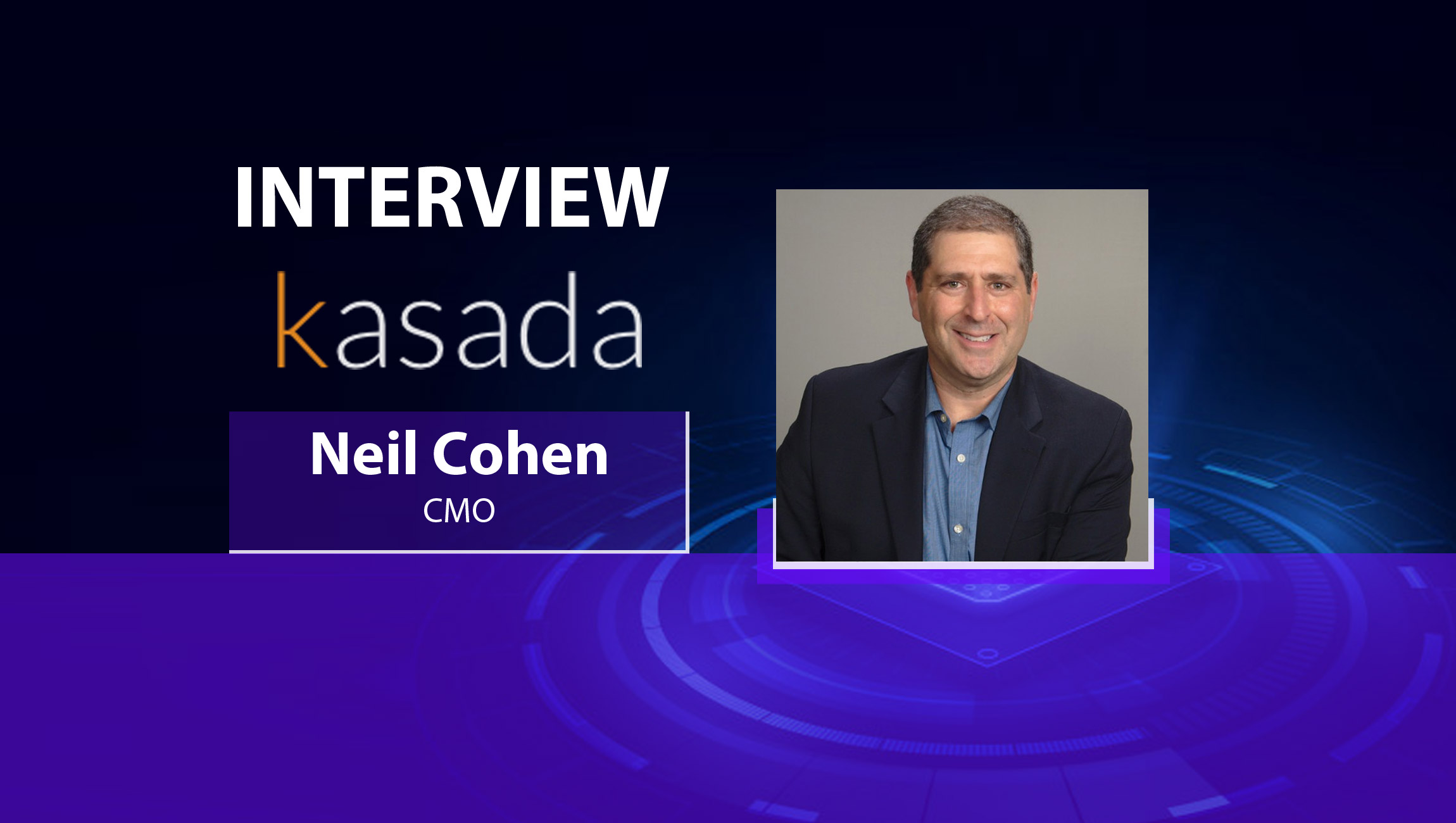Working with a modest marketing budget requires marketing leaders to further optimize and prioritize their martech tools and choice of features to drive business ROI; Neil Cohen, Chief Marketing Officer at Kasada shares his expertise:
______
Welcome to this martech chat Neil, tell us more about Kasada? And what inspires you most about marketing and of course, martech!
I started my career in engineering, as I have always been interested in technology. As my career evolved, getting into marketing for B2B tech companies just seemed like a natural fit. It has been a way to remain close to technology trends like cybersecurity, blockchain and edge computing, while also being close to the business side of things – sales, product, corporate development, finance, etc. – and still having an immediate impact on the growth prospects of the company.
Martech has become so data-driven, with a heightened importance in leveraging technology and measuring ROI, that there’s now a science to combine with the art that appeals to my precise analytical background.
Marketing Technology News: A Few Of The Most Successful Augmented Reality (AR) Marketing Campaigns
What are some marketing technologies that have often featured in your martech stack over the years?
When I worked for a Fortune 500 company, we had the budget to experiment with a lot of martech. Some of my favorites were ABM platforms like Demandbase (to help personalize the message for existing customers and drive them to purchase add-on products), Integrate (to help get better return on content syndication programs), and internally developed tools that helped us identity new accounts that had a propensity to buy our products, using data analytics.
Since moving to startups, I have a much more modest budget to work with. But it’s amazing to see the types of martech that are out there that can have a big impact with little to no investment at all. For example, we are leveraging Builtwith for competitive technographic intelligence, using 3rd party intent data from our contact database, and utilizing Leadfeeder for website visitor intelligence. All of these sources give us buying triggers that allow for a targeted, account based approach to our campaigns and digital ad investments. In addition, inexpensive tools like SpyFu and RankMath have helped guide our strategy and implementation of content marketing and SEO best practices.
When matching new marketing processes to new martech, what are some challenges you still see marketing teams struggle with?
There are too many martech providers out there that don’t work well together. These aren’t the types of things that are discussed enough during evaluation of new martech for your stack. If you’re not careful, you’ll wind-up with a lot of ‘glue’ needed in order to tie everything together – services like HubSpot Operations and Zapier become a necessity. Your workflows can become overly complicated and you can often lose visibility when having to move data to and from disparate systems. Therefore, it’s important to make sure you really understand how any new martech will integrate within the stack you have (and how it will integrate with your future plans) to keep operational difficulties at a minimum. If you don’t, even the smallest configuration issue can be a drag on your time – especially if you are too small to have a dedicated marketing operations team. Be sure to also consider whether the provider locks you into their platform – I don’t like to get locked in so I can retain the flexibility to try different things as the company grows. It also helps give you leverage around pricing negotiations and renewals.
What are some of your most successful marketing plans / campaigns that you’d like to share learnings from?
It’s really tempting when you have a broadly applicable product or service, to market it in a way that captures all of your potential – cross-industry, multi use-case, etc. In doing so, however, you lose the focus that comes by addressing the customers’ specific industry and the insight you can gain with a more tailored approach. Many of my most successful plans and campaigns have come by targeting a specific industry focus and/or a particular use-case, as opposed to a swiss-army knife approach.
At my first startup as a head of marketing, we had a product that was broadly applicable. That said, as a startup targeting Fortune 500 companies, you will find such companies will find any reason NOT to use you unless you solve a hair on fire problem that NOBODY else can solve. For them, that’s what it takes to justify the risk of choosing a small startup. We identified a use case in the telecommunications industry that did just this, and we pivoted our marketing message, sales prospecting and campaigns towards the 50 largest service providers that we knew had this problem. We reached out to them with a very targeted, focused message. We were able to open doors and generate pipeline and revenue that would not have been possible without the industry and use-case focus.
Other times, your product aligns best with a particular geography. In one case, we found that the biggest problem was with manufacturing supply chain partners in China. We went after these companies by marketing to the local suppliers that had the problem, as opposed to the company headquarters. Another time, we identified high net worth targets in North Asia, so we went after those using the social media channels that were more prominent in their regions vs. those we use here in the U.S. You can’t do it all – so it makes sense to find the lowest hanging fruit that has the biggest problem you can solve, and then go after that full force.
Marketing Technology News: Should Content Curation Be A Part Of Your Content Marketing Strategy?
Can you share a few predictions that you have for the future of martech?
With so much innovation happening already in martech you will see much more consolidation in the industry. It’s what’s needed to get better use of the tech that’s already out there, as it’s getting to be far too difficult to work with so many vendors and disparate products that put the onus on you, the customer, to make it all work together. You are starting to see different areas of martech do a better job at catering to startups and scaleups, as opposed to those that are best suited and implemented by enterprise companies. I’d really like to see better use of AR/VR in marketing – events, advertising, social media, etc. I don’t think we’re anywhere near the potential of what it could be. That said, it’s only a matter of time – and I’m truly surprised this didn’t break through more as a result of the pandemic and the rush to virtual living and working.
A few takeaways for marketing leaders and CMOs/CEOs: top factors they should keep in mind as they plan for the rest of 2021?
The pandemic has pushed companies’ investments in digital marketing, even more so than in the past. Simply put, there were no alternatives. It’s the most “noisy” environment I’ve ever had to market into, which means it’s especially difficult to break-out from the noise with online advertising. CPC and CPM are higher than they used to be. So less is often more – do you really know your ICP (ideal customer profile) so you can be as targeted as possible in your marketing? Do you have your positioning right? With so many B2B brands vying for the attention of similar personas, do you have a differentiated message that resonates with your buyers, or do you look like everyone else? Stop drinking your own Kool-Aid and take an outside-in look in order to gauge how different you really are. You might find that your brand promise is an inhibitor to generating demand and that you’re throwing good money after bad with your lead gen programs.

Kasada is the most effective and easiest way to defend against advanced persistent bot attacks across web, mobile, and API channels. With Kasada, trust in the Internet is restored by foiling even the stealthiest cyber threats, from credential abuse to data scraping. The solution invisibly stops automated threats while inflicting financial damage to attackers, destroying their ROI. With the ability to onboard in minutes, Kasada ensures immediate and long-lasting protection while empowering enterprises with optimal online activity. Kasada is based in New York and Sydney, with offices in Melbourne, San Francisco, and London.
Neil Cohen is a versatile tech executive with 25-years of combined marketing, product management and engineering experience. He was VP of Global Marketing at Akamai Technologies, where he ran worldwide marketing for a $1.3 billion cybersecurity and web performance business. He was also VP of Product Marketing at Akamai where he helped double revenue, launch new products and grow into businesses exceeding hundreds of millions of dollars. Neil’s passion lies in bringing disruptive B2B technology to market and achieving rapid customer adoption. His diverse startup tech experience spans across areas including cybersecurity, cloud/edge computing, big data, and blockchain.











